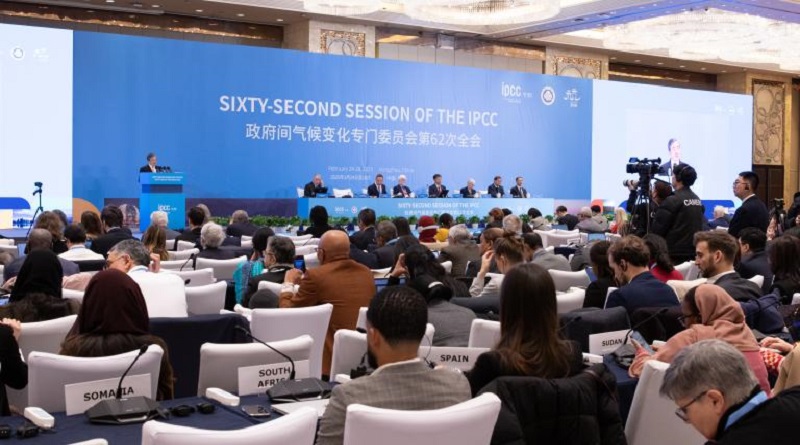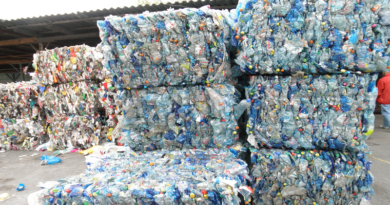Seventh Assessment Report: IPCC opens session in Hangzhou, China
Photo caption: Participants at the 62nd session IPCC. Credit: IPCC Secretariat
The 62nd Plenary Session of the Intergovernmental Panel on Climate Change (IPCC) opened on Monday 24th February 2025 in Hangzhou, China, to consider and agree on the draft outlines of the three Working Group contributions to the Seventh Assessment Report (AR7) and the Methodology Report on Carbon Dioxide Removal Technologies, Carbon Capture Utilization and Storage.
During the week-long session, the delegates representing Panel’s 195 member governments will also consider the respective timelines and budgets for these four reports.
“This is a pivotal session for the delivery of the IPCC’s Seventh Assessment Report”, said IPCC Chair Jim Skea.
The Panel’s agreement on the outlines of the three Working Group contributions to the Seventh Assessment Report and the Methodology Report on Carbon Dioxide Removal Technologies, Carbon Capture Utilization and Storage as proposed by the scoping meeting participants will clear the way for the scientists to start their work on these four reports.
The meeting’s agenda also includes IPCC program and budget and an early consideration of the AR7 Synthesis Report-the final installment of the Seventh Assessment Report to be finalized by late 2029. No decision about the Synthesis Report is expected at this point.
On behalf of the People’s Republic of China hosting this Plenary, the country’s Special Envoy for Climate Change Liu Zhenmin, and Chen Zhenlin, Administrator of the China Meteorological Administration, welcomed delegates and observer organisations at an opening ceremony at InterContinental Hangzhou in the Zhejiang province.
In addition to the IPCC Chair, more than 400 delegates were also addressed by Ko Barrett the Deputy Secretary General of the World Meteorological Organization. The ceremony also included screening of video messages from Inger Andersen, the Executive Director of the United Nations Environment Programme, and Simon Stiell the Executive Secretary of the United Nations Framework Convention on Climate Change.
The Intergovernmental Panel on Climate Change (IPCC) is the UN body for assessing the science related to climate change. It was established by the United Nations Environment Programme (UNEP) and the World Meteorological Organization (WMO) in 1988 to provide political leaders with periodic scientific assessments concerning climate change, its implications and risks, as well as to put forward adaptation and mitigation strategies. In the same year the UN General Assembly endorsed the action by the WMO and UNEP in jointly establishing the IPCC. It has 195 member states.
Thousands of people from all over the world contribute to the work of the IPCC. For the assessment reports, scientists and experts volunteer their time as IPCC authors to assess the thousands of scientific papers published each year to provide a comprehensive summary of what is known about the drivers of climate change, its impacts and future risks, and how adaptation and mitigation can reduce those risks.
The IPCC has three working groups: Working Group I, dealing with the physical science basis of climate change; Working Group II, dealing with impacts, adaptation and vulnerability; and Working Group III, dealing with the mitigation of climate change. It also has a Task Force on National Greenhouse Gas Inventories that develops methodologies for measuring emissions and removals.
IPCC assessments provide governments, at all levels, with scientific information that they can use to develop climate policies. IPCC assessments are a key input into the international negotiations to tackle climate change. IPCC reports are drafted and reviewed in several stages, thus guaranteeing objectivity and transparency.




